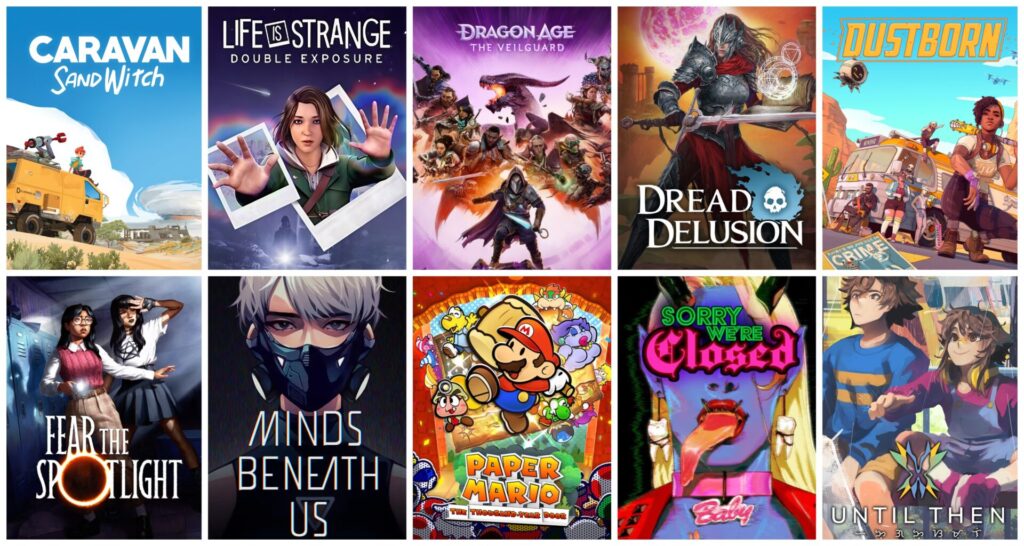Amidst the resurgence of hostility towards LGBTQ equality, video games have become a tool of defiance and solidarity for many creators. The ten nominees for Outstanding Video Game at the 36th Annual GLAAD Media Awards reflect this shift, showcasing LGBTQ-inclusive stories that celebrate the diversity of the queer community. These games go beyond merely featuring LGBTQ characters and worlds—they are the result of designers and developers committed to creating inclusive spaces in a time where LGBTQ equality and inclusion face increased opposition. Representation in video games has never been more crucial, and these standout titles from 2024 are dedicated to seeing that message through.
We are excited to share the ten nominees for this year:
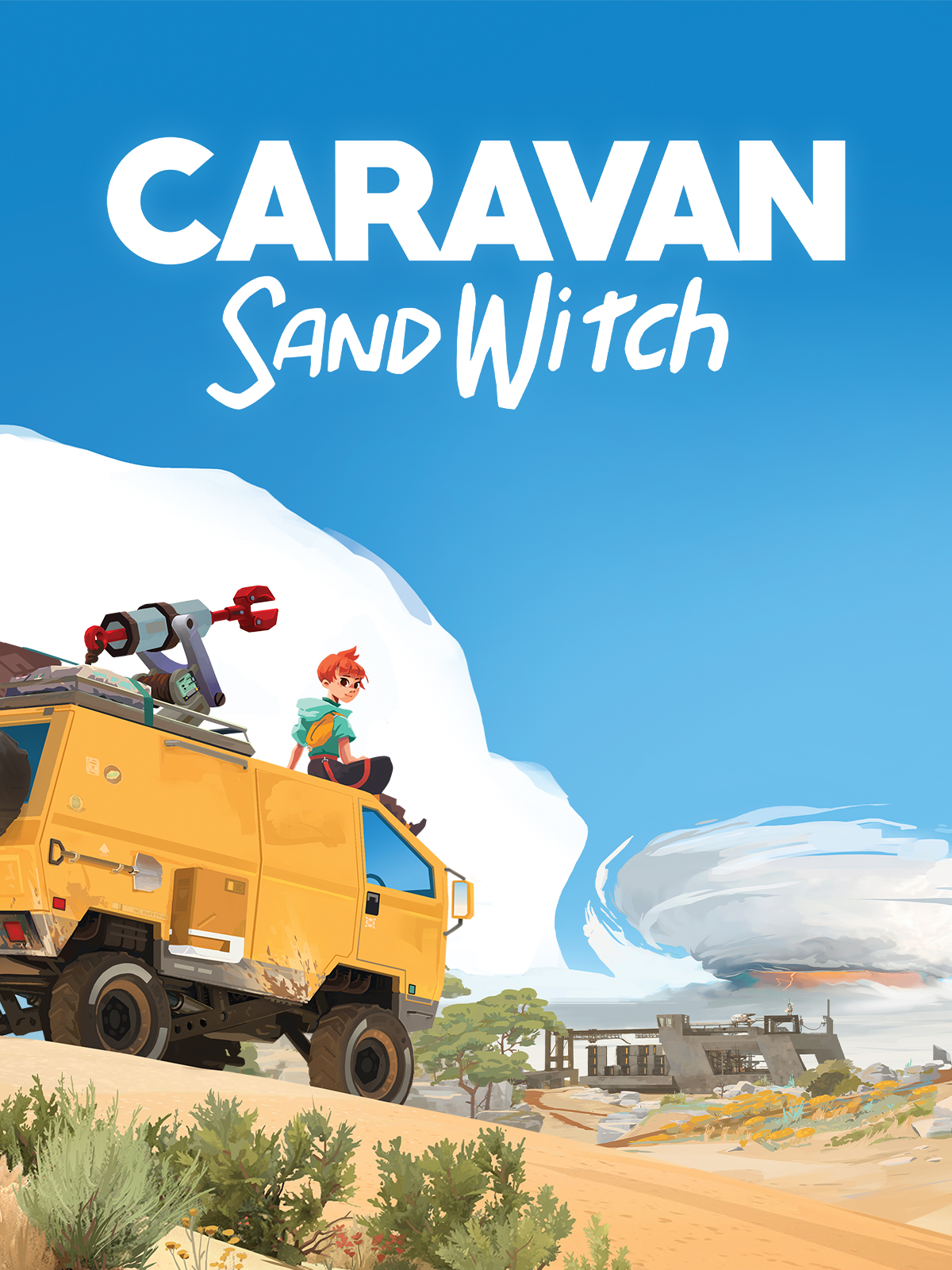
Caravan SandWitch
Published by Dear Villagers
Developed by Studio Plane Toast
A cozy apocalypse may seem like an oxymoron, but it’s an apt description of Caravan SandWitch. After getting a distress signal from her long-lost sister, Sauge, the game’s protagonist, returns to the ravaged planet of Cigalo to piece together clues regarding her sister’s disappearance and possible location. Though the majority of the player’s time is spent quietly driving through ruined but striking landscapes, scavenging parts, and solving puzzles, the world never feels empty. And Caravan SandWitch’s commitment to creating interesting and inclusive characters brings the world to life. Queer representation is everywhere; Sauge herself was raised by two fathers, Nèfle is a brilliant, nonbinary tinkerer, and Yucca is a transgender girl with a progress flag and a shark plushie in her room. (If you know, you know.) The peaceful and nonthreatening adventure Cigalo offers is delightful, especially since apocalyptic settings are notoriously and often disproportionately cruel to LGBTQ characters. Caravan SandWitch is simply a joy to play and is guaranteed to add a little extra brightness to anyone’s game library.
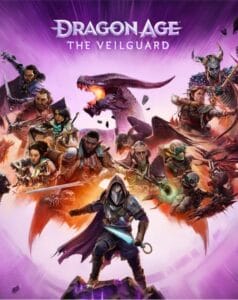
Dragon Age: The Veilguard
Published by Electronic Arts
Developed by BioWare
Breaking boundaries takes courage, and Dragon Age: The Veilguard is fearless in taking unprecedented strides towards more comprehensive LGBTQ representation in AAA games. This fantasy epic from a beloved RPG franchise features gorgeous environments and some of the snappiest combat from BioWare to date, but in our view, its most groundbreaking feature is the option to play as a canonically transgender character. Doing so opens up additional dialogue where Rook – the game’s protagonist and playable character – can speak about their transition and support other trans characters like Taash, a fellow party member whose narrative arc involves grappling with their own gender. Coming out can be complicated, and the game never shies away from the messy experiences that sometimes accompany fear of rejection and insecurity of being misunderstood. As the sequel to the first-ever GLAAD award-winning video game, The Veilguard cements Dragon Age’s legacy as a trailblazer for LGBTQ representation in games. All told, Dragon Age: The Veilguard is more than BioWare’s long-awaited return to single-player RPGs – it is a bold and ambitious undertaking in bringing fantasy narratives into the 21st century.
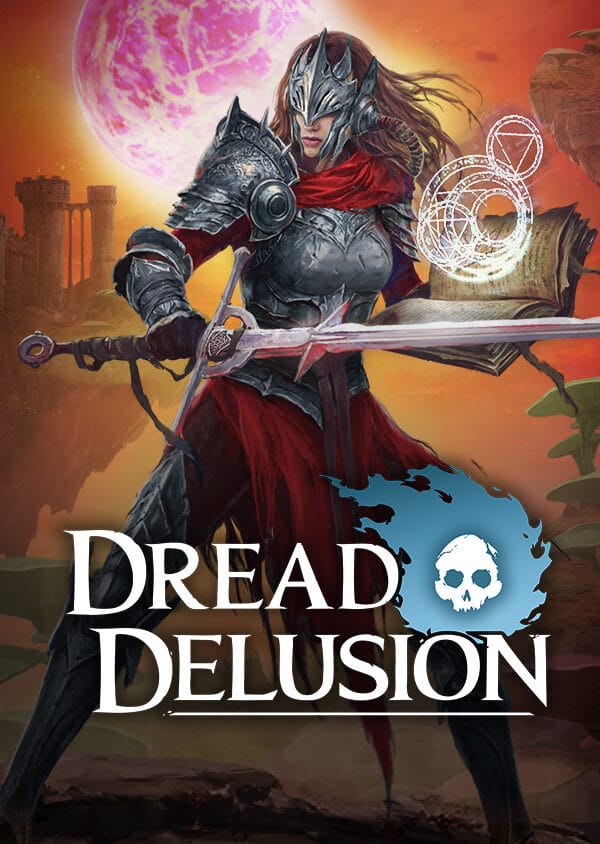
Dread Delusion
Published by DreadXP
Developed by Lovely Hellplace
Dread Delusion is more than a mere throwback to ’90s-style role-playing games. Its gameplay evokes the era of early 3D graphics and classic RPG elements – stat point allocation, world exploration, and branching narratives – and its surreal, Lovecraftian world feels like a dark spiritual successor to The Phantom Tollbooth. The protagonist, a prisoner of the Oneiric Isles Inquisition, is forcibly enlisted to stop rebel leader Vela Callose and her campaign to usher in a new age of folk gods. Summarizing the game in just a few words would be a great disservice, as would be trying to distill the breadth of its inclusivity. Dread Delusion is so very queer that it is baked into the lore of the world itself, with several LGBTQ characters featured prominently in the main quest. One of the game’s more fascinating stories revolves around two LGBTQ characters – one a transgender woman and the other nonbinary – in Clockwork Kingdom, a place ruled by a king who has the authority to shape reality itself. Every quest found in the Oneiric Isles presents moral quandaries that challenge notions of gender, religion, and mortality, all while preserving its signature bizarreness and sincerity. There is no game we would rather experience an existential crisis in (or two) than Dread Delusion.
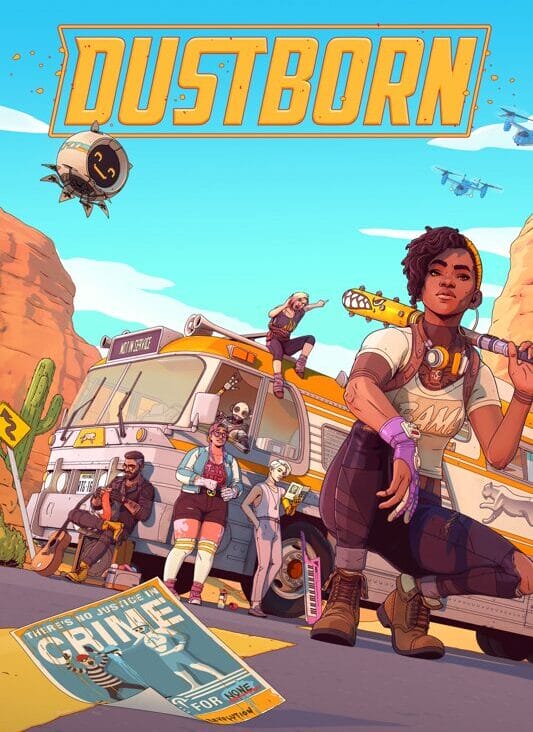
Dustborn
Published by Spotlight by Quantic Dream
Developed by Red Thread Games
Dustborn is perhaps 2024’s most misunderstood game. Upon its release in August, an unfortunate barrage of online criticisms quickly usurped any opportunity for meaningful discourse about it. But having actually played the game, we wholeheartedly believe that its twisting story and vibrant world are worth experiencing. In this alternate history adventure, Pax and her crew embark on a road trip through the Divided States of America to escape to Nova Scotia and deliver a secret package – all while masquerading as up-and-coming musicians. This literal band of misfits is fraught with drama and strained relationships, but those growing pains also make for some touching moments. Pax’s on-and-off-again partner Noam, voiced by nonbinary actor Celeste De Veazey, struggles to find their place in the group, often holding others at a distance. Caretaker is a robot who also grapples with belonging. What is gender and purpose to a robot whose programming no longer defines every aspect of their identity? Between all the tongue-in-cheek moments in Dustborn, plenty of space is reserved for heartfelt ones as well. Their journey, at its core, is about growing, changing, and learning to treat others with kindness, and we can’t help but think that Dustborn itself deserves to be treated more kindly as well.
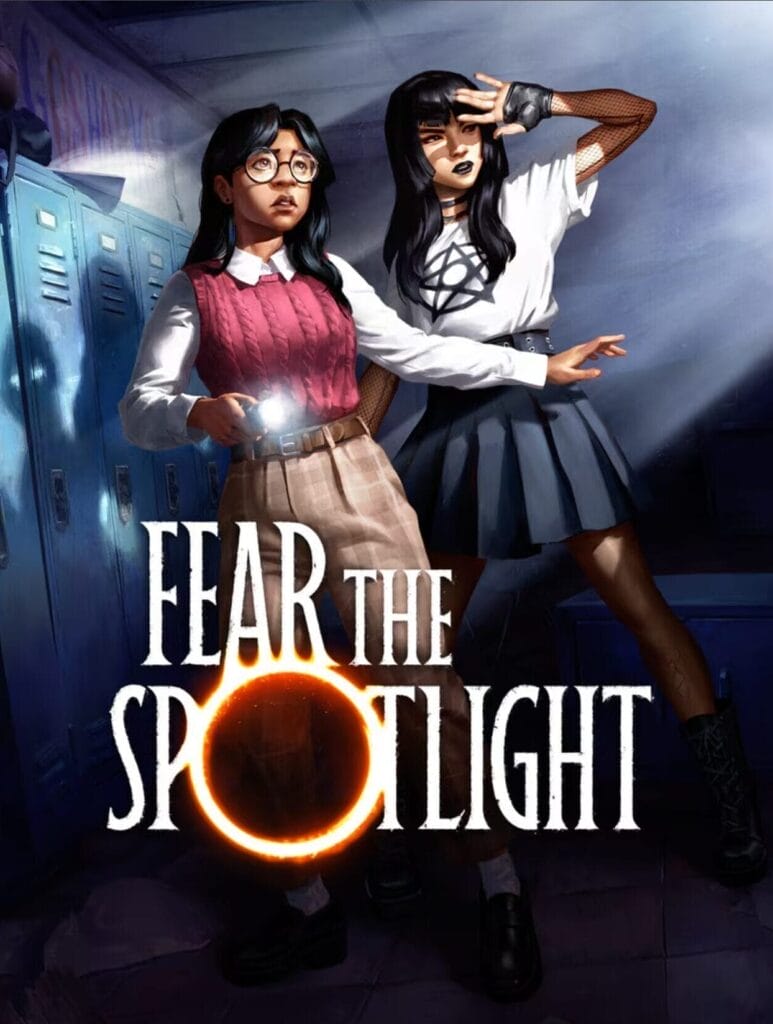
Fear the Spotlight
Published by Blumhouse Games
Developed by Cozy Game Pals
Any horror genre fan knows that teenagers, ouija boards, and schools are hallmarks of a scary good time. Fear the Spotlight has all three – and yet despite its spooky premise and hair-raising atmosphere, it is one of the most charming games we played this year. Describing a horror game as ‘feel-good’ may seem strange, but there’s something so magnetic and heartwarming about the friendship between Vivian and Amy, both of whom are playable characters. The terror of being separated and stalked by nightmarish creatures cannot compare to the fear that Vivian feels about giving Amy a love letter at the end of the night. We live in a world where LGBTQ kids are often at the epicenter of scrutiny and debate, and while the game never explicitly draws this comparison, putting two queer girls in a setting where they have to avoid being seen so they can be together feels like more than just coincidence. It’s hard to not root for them, and that love letter is just extra motivation to ensure the girls survive the night unscathed. As the vaunted debut title for both Cozy Game Pals and Blumhouse games, Fear the Spotlight tells an unforgettable queer story that deserves all the attention it receives.
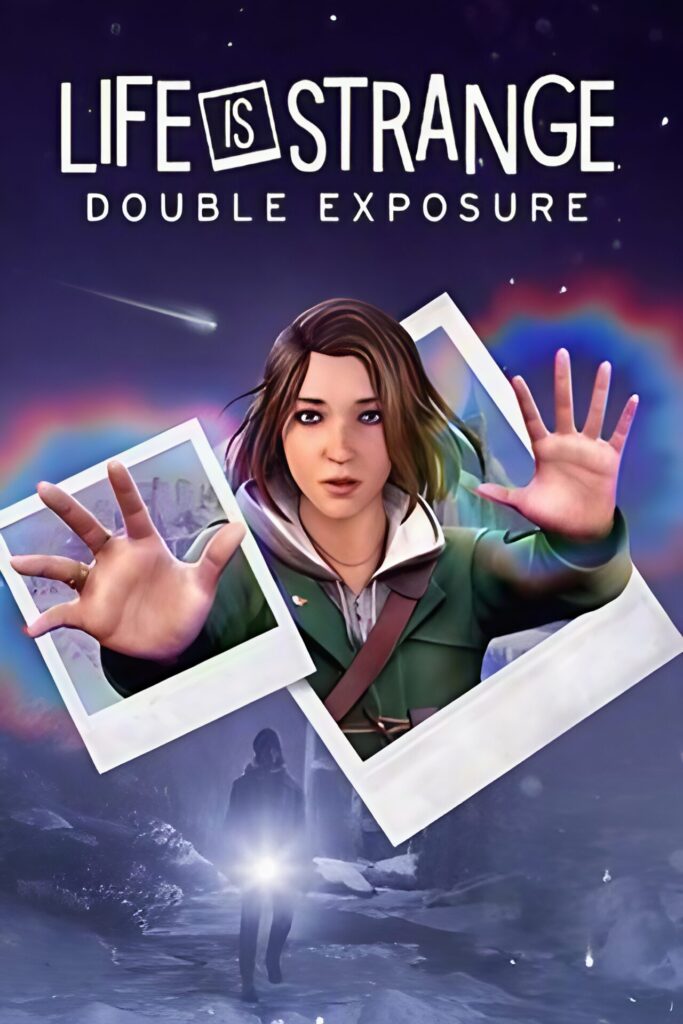
Life is Strange: Double Exposure
Published by Square Enix
Developed by Deck Nine
Max Caulfield, beloved protagonist of the original 2015 game Life is Strange, makes a surprise return in Life is Strange: Double Exposure, a direct sequel set on the beautiful Vermont campus of Caledon University. Now applying her photography skills as an artist-in-residence, Max finds herself in a new location surrounded by a whole new cast of friends – and potential foes. The sudden and tragic death of her friend Safi sends Max on a winding quest for answers, both about her friend and her own future direction in life. Like previous Life is Strange games, Double Exposure exists in a refreshingly authentic world where LGBTQ people are simply commonplace – a reality that should be a given and yet very few games manage to reflect. Most notably, the game introduces the series’ first major transgender character in literature professor Gwen Hunter, played by out trans actor Rachel Crowl. Other outstanding LGBTQ characters include the lovable and neurodivergent Moses Murphy, the brash and beguiling Vinh Lang, the genial and magnetic Amanda Thomas, and, of course, Max herself. No matter how many twisting adventures Life is Strange sends us on, we will always love coming back to where the heart of the series truly lies – the compelling and familiar queer characters that make us feel right at home.
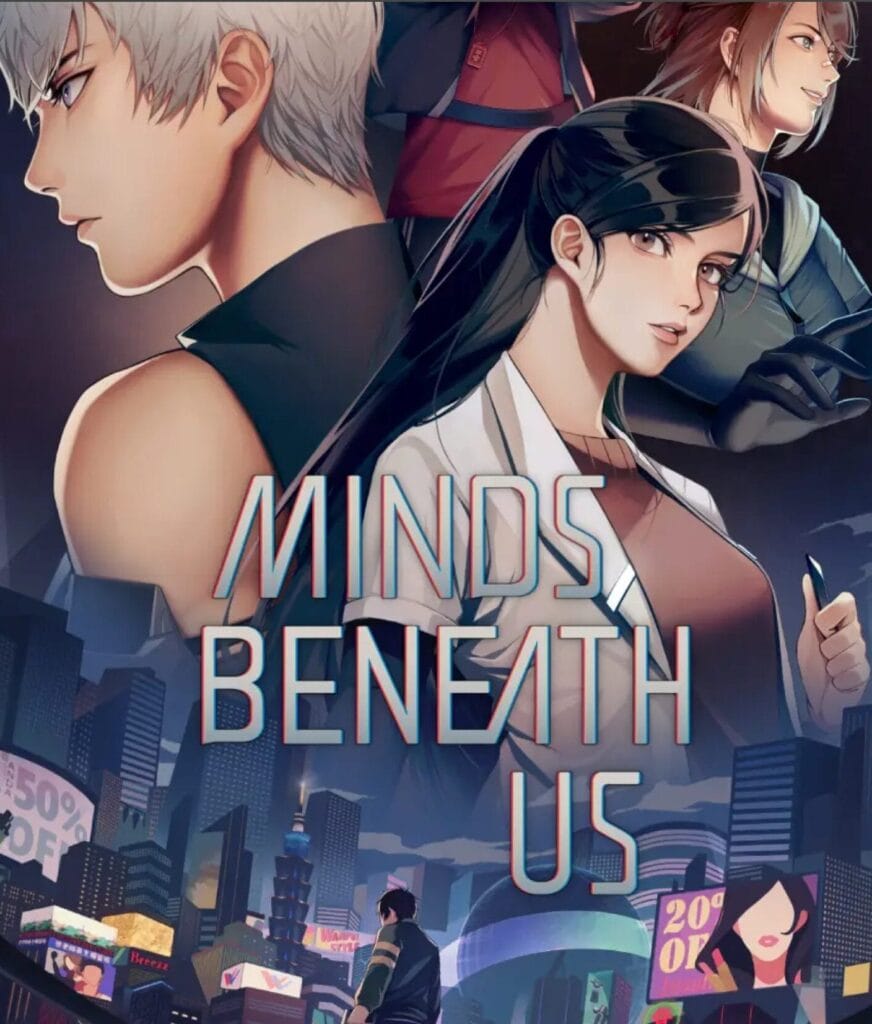
Minds Beneath Us
Published by BearBone Studio
Developed by BearBone Studio
Few game titles feel as eerily relevant in our current age as the cautionary tale told in Minds Beneath Us. The fictional city of Wanpei has all the components of a classic cyberpunk dystopia, and while megacorporations, human exploitation, and AI are the foundation of the game’s story, character relationships are often the catalyst for the most thought-provoking scenes. One of the protagonist’s coworkers, Jeff, is a gay man whose older adoptive father struggles to understand and accept his queerness, using his age and generational values as a shield against criticism. Another major character, nicknamed 23, pines after a woman she has grown to idolize, though 23 often worries that truly confessing her attraction would destroy their delicate friendship. These characters have struggles that feel familiar, and that’s no accident. Although Wanpei is a snapshot of a dark future, it is ultimately a reflection of our present. Minds Beneath Us may draw players in with its striking visuals and impressive storytelling, but it is its portrayal of resilience in the face of unjust power that is sure to linger long after credits roll.
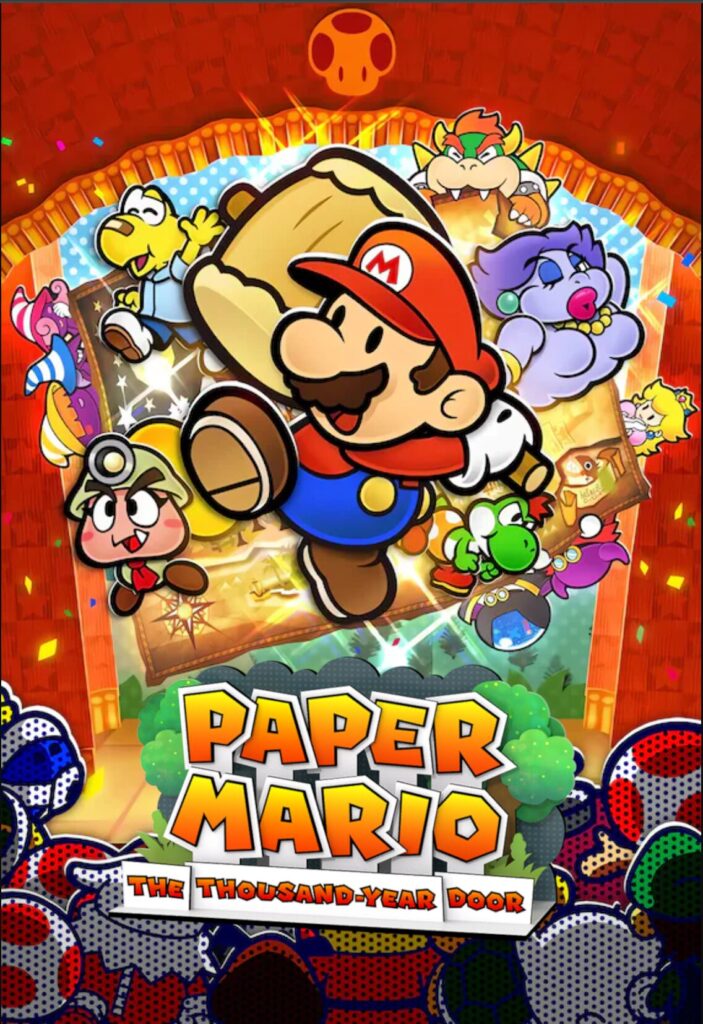
Paper Mario: The Thousand-Year Door
Published by Nintendo
Developed by Intelligent Systems
Ever since the original Paper Mario: The Thousand-Year Door was released in 2004, it has landed on countless lists as one of the best video games of all time. And it’s not difficult to see why. Its whimsical take on the RPG genre combined with the beloved Mario franchise made it an instant classic, but what some fans might not know is that transgender character Vivian had her identity scrubbed from the original English localization. This changed in the 2024 remake of The Thousand-Year Door, finally giving this beloved little ghost witch the respect she deserves. Along with more authentic terminology in the Japanese-language version, Vivian is now canonically transgender in the English version too, as shown in a scene where she tells Mario that it took her time to realize that she was her siblings’ sister and not their brother. With anti-trans rhetoric on the rise, people have become afraid and sometimes hateful towards people they don’t understand. But The Thousand-Year Door makes a point to show that Vivian isn’t scary; she’s shy, caring, and kind. Most importantly, she learns that she deserves to be treated better by those around her – an essential lesson for all people, trans or not. After 20 years, Paper Mario: The Thousand-Year Door has corrected a stain on its otherwise spotless legacy. No gaming franchise in the world is more iconic than Mario, and by including an authentic and respectful depiction of a trans character in this cherished series, Nintendo has strengthened its reputation in making games for everyone, acknowledging the LGBTQ players who have been core to their fandom from the beginning.
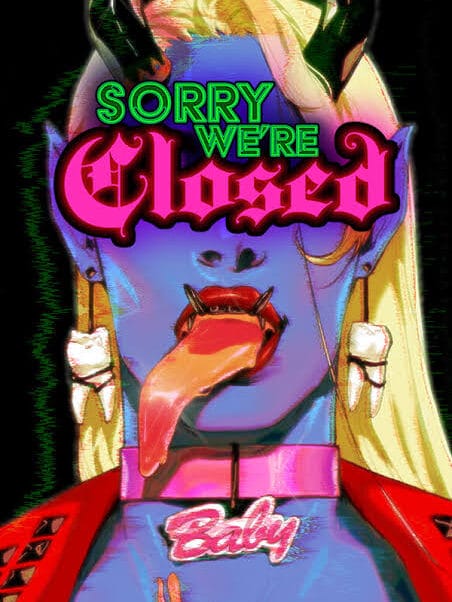
Sorry We’re Closed
Published by Akupara Games
Developed by à la mode games
Falling in love with a powerful demon three years after a messy breakup is one hell of a rebound. Unfortunately for Michelle, she’s given three days to do just that after she’s visited by The Duchess, a love-starved demon who will stop at nothing to fill their voracious need to be adored. The narrative of Sorry We’re Closed is crunchy, campy, and unexpectedly complex, but it’s also undeniably queer at every turn. Both Robyn, one of Michelle’s closest friends, and The Duchess are either nonbinary or simply transcend gender altogether, and two key male characters, Darrel and Oakley, are in a relationship so drama-filled that they have an entire questline of their own. Meanwhile, Michelle herself has an ex-girlfriend that stars in a sapphic romance show. The character designs are unmistakably influenced by drag fashion and the game itself feels like a tribute to queer culture in urban communities. For fans who are nostalgic for retro horror and want games with more LGBTQ inclusivity, Sorry We’re Closed is a devilishly good time.
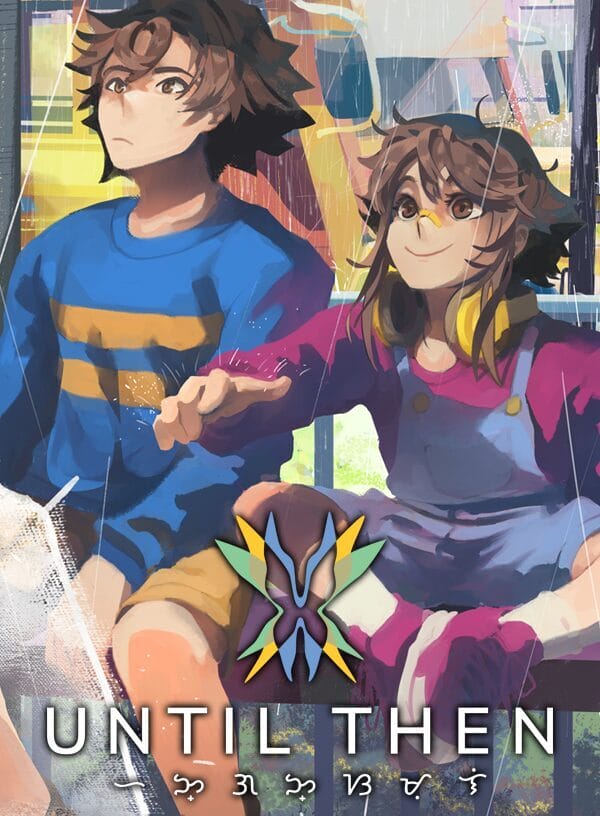
Until Then
Published by Maximum Entertainment
Developed by Polychroma Games
Until Then is a supernatural timeloop adventure disguised as a normal coming-of-age story. Although the game’s version of the Philippines has been partially ravaged by a series of natural disasters called The Ruling, main characters Mark, Cathy, and Ridel are more preoccupied with the typical woes of the average teenager: homework, prom, and school drama. Mark might be the protagonist, but Cathy is the true star. She’s fiery, funny, and hopelessly queer, often teasing her friends about their inability to get dates despite her many failed attempts to get a girlfriend of her own. There is a misconception that discussions about queerness and mental health do not exist in Asian and Pacific-Islander communities, and Until Then not only proves otherwise, but it is a shining example of how nuanced many of these conversations actually are. We found it a privilege to be moved by a game that so poignantly understands the facade of strength and humor often worn by queer youth in crisis. Until Then isn’t ultimately about saving the world; it is a lesson in processing grief and understanding that sometimes the hardest thing to do isn’t to let go, but to hold on.
The 36th Annual GLAAD Media Awards nominees were published, released, or broadcast between January 1 and December 31, 2024. The GLAAD Media Awards ceremonies, which fund GLAAD’s work to accelerate LGBTQ acceptance, will take place in Los Angeles on March 27, 2025. You can keep up with the latest developments by following GLAAD on BlueSky, Instagram, and Facebook.

